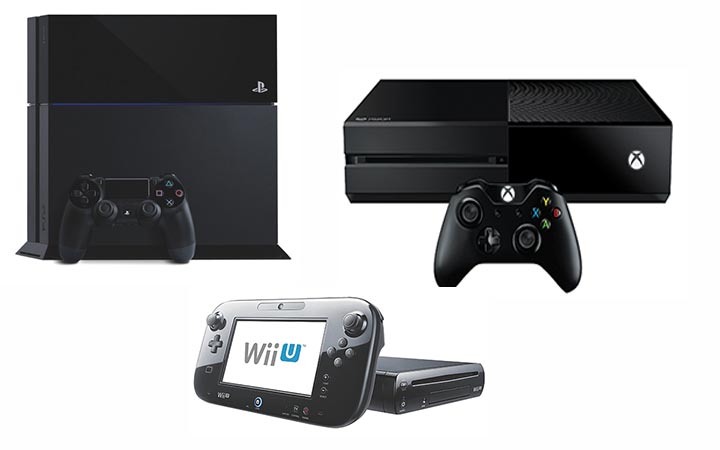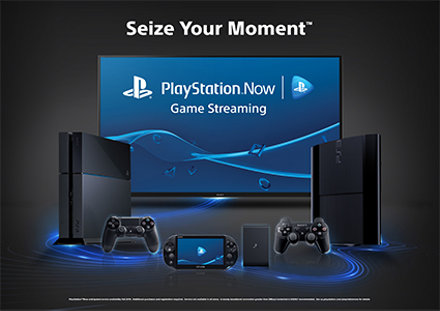 Online gaming has been around for a long, long time; it was one of the first applications of interconnected computers. PC gamers in particular have been rocking connected matches with players located all over the planet since the times that modems actually screeched over phone lines. I know, I was there—even late by greybeard standards—downloading Qtest over my 56kbps modem back in the day. Console gamers, however, have joined the party in a big way. We’re not going to go back to the Sega Dreamcast, to the original Sega channel, or even to the original launch of Xbox LIVE back in 2001. Let’s turn to the advanced internet services you’ll find on the PlayStation 4, the Xbox One, and the Wii U today.
Online gaming has been around for a long, long time; it was one of the first applications of interconnected computers. PC gamers in particular have been rocking connected matches with players located all over the planet since the times that modems actually screeched over phone lines. I know, I was there—even late by greybeard standards—downloading Qtest over my 56kbps modem back in the day. Console gamers, however, have joined the party in a big way. We’re not going to go back to the Sega Dreamcast, to the original Sega channel, or even to the original launch of Xbox LIVE back in 2001. Let’s turn to the advanced internet services you’ll find on the PlayStation 4, the Xbox One, and the Wii U today.
Connected Features
There are a number of connected features that have rolled out in this generation that really leverage your console as an IoT device. Nintendo kicked the party off with their Wii U community online; you can add your friends and chat directly, but the social aspect of the Wii U community boards for each game is a way to connect unlike anything done on a console before. You can trade messages and sketches, right from an app on your console; sometimes it’s just plain silly, but you can find some great insights to the games you’re playing when you’re stuck and need help.
 Streaming Power
Streaming Power
All three major consoles are great ways to stream connected video, with the Internet bringing apps like Netflix and Crunchyroll. The Xbox One has breached some more boundaries, becoming a thing of the internet as opposed to just part of the Internet of things. One such smart feature is being able to tie into your cable box, and have access to TV listings and tying in with your cable box. Leveraging Kinect and Skype to become a network communicator is another.
Both the Xbox One and PlayStation 4 have also become internet-connected game footage recorders. The Xbox One ties into your Microsoft One Drive. Both consoles can stream live to Twitch and other streaming services.
Streaming, both incoming and outgoing, is the major breakthrough for this generation of consoles. The share button on both devices makes it easy to become a video game videographer, and both systems become internet-connected radios with Xbox Music on the Xbox One and Spotify on PlayStation 4.
 Console-less Consoles
Console-less Consoles
One of the most interesting features, for me, isn’t really attached to either of these consoles though; PlayStation Now connects up with the TVs that Tom Brauser mentioned in hisintroductory article on IoT. Smart streaming means that you can stream over 200 PlayStation classic titles from the first three generations of PlayStation for a low monthly rate.
Internet-connected features have turned each console into an Internet of Things devices, and that’s not likely to change. In fact, it’s only going to become more prevalent, as we see more streaming services, more ties to permanent accounts like your Xbox LIVE and PlayStation Plus account, and exciting new features that integrate with each system’s mobile apps. Nintendo’s existing 3DS platform does this already with their incredibly cool StreetPass semi-offline asynchronous multiplayer. It is a fancy of way of saying that these systems create their own mini-network when they are brought near to each other out there in the world. What the upcoming Nintendo NX system holds—well, we’ll have to wait and see!

By Graham Williams, Photography, Home Theatre, Lifestyle
Graham Williams is a Canadian tech author, gamer, photographer, and host of GetConnected on radio and TV. Graham is the author of the historical fiction novel 1666 and can frequently be found playing his PlayStation 4, Xbox One, and Nintendo Wii U. You can follow him on Twitter at “@thetechnogram”



